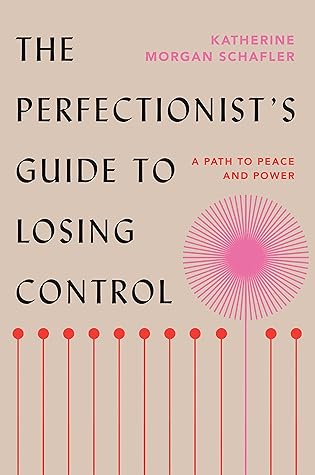More on this book
Community
Kindle Notes & Highlights
Read between
January 9 - January 19, 2024
Perfectionists live with a tension inside them that never goes away.
But you can appreciate enough and still want more.
Self-worth is not self-esteem.
Maladaptive perfectionists do not feel whole or secure. They feel broken, and they operate from a mindset of deficit.
as soon as I’m skinny,
as soon as I get pregnant,
I can feel good about myself as soon as I’ve earned it.
Emotional perfectionism: I want to experience a perfect emotional state.
Cognitive perfectionism: I want to understand perfectly.
Behavioral perfectionism: I want to behave perfectly in my roles and perform...
This highlight has been truncated due to consecutive passage length restrictions.
Process perfectionism: I want this process (an airline flight, sobriety, going to church, giving a presentation, a marriage) to begin, continue, and end perfectly.
I made my joy contingent upon my performance instead of my existence.
For intense perfectionists, it looks like operating as if achievement will give you what only connection can.
Power is understanding the immutability of your worth. From that place, you’re not desperate for an outcome to unfold in a particular way, because you know you’re already worthy of whatever the outcome would grant you. You give yourself permission to feel joy, love, dignity, freedom, and connection now. You already won.
Self worth feels like the opposite of shame. When we believe we have to earn our worth, we believe we are worthless. This feels like shame. Shame is the dark underbelly of perfectionism. Power is knowing that we were worthy all along. We never had to earn anything.
When you’re disconnected from your self-worth, you’re fixated on control. You may be experienced as demanding or needy to be around because you’re so attached to a specific outcome’s unfolding. You need something to happen in a certain way to feel relief. Whether you realize it or not, you are desperate.
People can feel the attendant anxiety of a person who is desperate. If you want to be a leader in your field, in your family, in your community, in the world, you need to learn how to be powerful, not controlling. Nobody wants to work for or be around people who are controlling.
Your memories of perfect moments are memories of moments in which you were most present.
A misconception about being present is that presence equals happiness. We take deep breaths, fix our posture, then wait. We’re waiting to feel something. Shiny, clean, ready—happy. The way people in car commercials look like they feel. You can be present and feel tired. You can be present and feel heartbroken. You can be present and not feel ready. Presence guarantees freedom, not happiness.
Even in the moments when being present is hard because embracing reality is painful, presence retains an ameliorative quality. Being present is the only attainable ideal, which is why perfectionists are magnetically drawn to it.
You think that once you manufacture perfection externally, then you’ll feel fully alive, satisfied, connected, in touch with possibility, spacious, whole, centered—all the things people feel when they’re present. The inverse is true. The more you cultivate presence internally, the more you allow yourself to feel whole, alive, and connected, regardless of what’s happening around you. The more present you are internally, the more you recognize perfection externally.
The more present you are internally, the more you recognize perfection externally.
Because you haven’t.
main priority.
when you feel powerless, being controlling feels like the responsible thing to do.
when you need certain reminders:
The takeaway here is that you have to consciously respond, instead of unconsciously react, to perfectionism in order for it to be healthy.
We think perfectly understanding “why” can help us control our negative feelings about what occurred.
Power is found in accepting and processing the undesirable feelings within you, not by erasing them.
Messy perfectionists get stuck when the process doesn’t continue along perfectly.
Intense perfectionists are fixated on the process ending perfectly (achieving the goal).
Marissa’s goal, like the goal so many of us fall prey to, was not to process what happened but to learn how to control her feelings about what happened.
conditional love,
Connection is the source of all growth and healing. Connection is a need. In the absence of healthy connections, we become dysfunctional.


